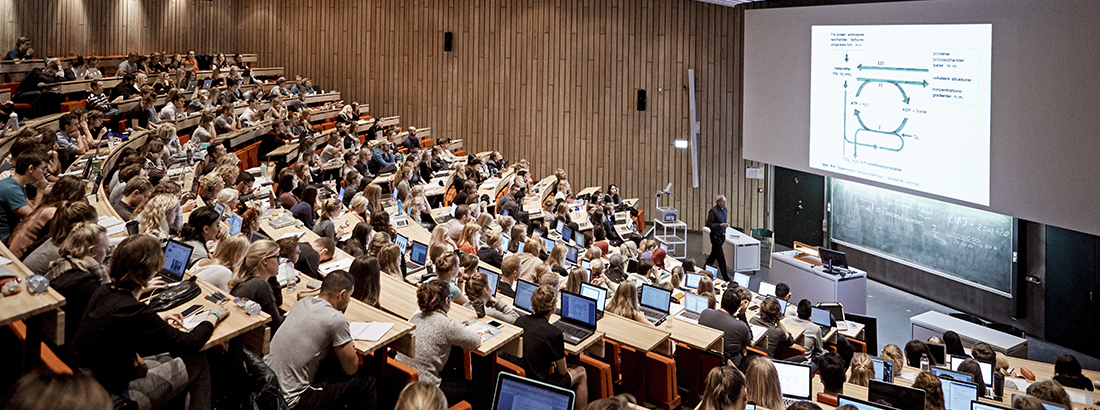Quality assurance of study programmes and courses at HEALTH

The Faculty of Health and Medical Sciences at the University of Copenhagen (HEALTH) provides study programmes within the health and medical sciences and educates graduates for the Danish healthcare system. Programmes include professional bachelor’s, bachelor’s and master’s degree programmes – three of which lead to official authorisation – professional master’s degree programmes and vocational and further adult education programmes.
Graduates work in both the private and public sectors. The main employers are national, regional and local-authority bodies as well as research, manufacturing and development companies in the life science industry, private pharmacies, dental and veterinary clinics etc.
Study programmes of relevance to society
The Faculty’s study programmes meet society’s need for graduates who are ready for the labour market, are professional and have research competences based on the latest theoretical and practical knowledge. The Faculty is responsible for ensuring that the programme’s competency goals reflect the courses’ academic and research development as well as the needs of society and employers for graduates with relevant competences. This is achieved through working with a targeted research strategy and by maintaining and further developing an effective quality-assurance system for the study programmes in dialogue with internal as well as external stakeholders, including employers.
Quality assurance of study programmes
The quality-assurance system at HEALTH ensures that the content of the Faculty’s study programmes reflects society’s need for health science graduates with extensive knowledge and practical skills in areas such as analysis, systems engineering, planning, treatment, prevention and innovation, and that the graduates’ choices of methods and approaches to problem-solving is research- and evidence-based.
The quality-assurance work is predicated on close co-operation between the Faculty’s academic and administrative units. The procedures and guidelines of the quality-assurance system ensure clear division of responsibilities and labour as well as transparency of work procedures and processes for monitoring and enhancing the quality of study programmes and courses.
